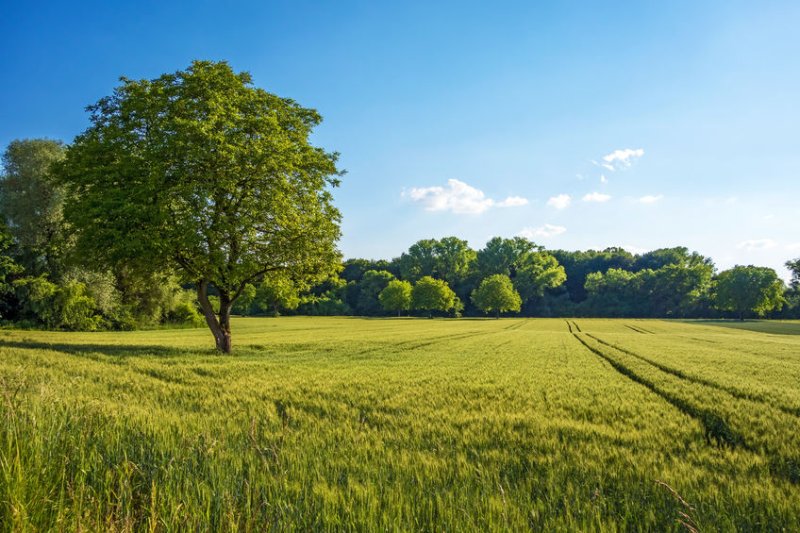
Mass tree planting to mitigate climate change is 'not always the best strategy' – with some experimental sites failing to increase carbon stocks, researchers say.
Four locations in Scotland where birch trees were planted onto heather moorland was analysed as part of a new study involving UK scientists.
They found that, over decades, there was no net increase in ecosystem carbon storage.
The team found that any increase to carbon storage in tree biomass was offset by a loss of carbon stored in the soil.
It comes as the government commits to planting trees to mitigate climate change, based on the logic that they remove carbon from the atmosphere and lock it into their biomass.
However, Dr Nina Friggens of the University of Stirling, who led the study, explained that tees also interact with carbon in soil, where 'much more carbon is found than in plants'.
"Our study considered whether planting native trees on heather moorlands, with large soil carbon stores, would result in net carbon sequestration. Significantly, we found that over a period of 39 years, it did not.”
The tree-planting experiments – in the Grampians, Cairngorms and Glen Affric – were set up the then Institute of Terrestrial Ecology in 1980, and the James Hutton Institute in 2005.
The research sites enabled the team to assess the impact of tree planting on vegetation and soil carbon stocks, by comparing these experimental plots to adjacent control plots consisting of original heath vegetation.
They measured soil respiration – the amount of carbon dioxide released from the soil to the atmosphere – at regular intervals during 2017 and 2018.
Soil cores were taken by researchers to record soil carbon stocks. They calculated tree carbon stocks by using non-destructive metrics, including tree height and girth.
The study recorded a 58% reduction in soil organic carbon stocks 12 years after the birch trees had been planted on the heather moorland.
Significantly, this decline was not compensated for by the gains in carbon contained in the growing trees.
It also found that, 39 years after planting, the carbon sequestered into tree biomass offset the carbon lost from the soil – but, crucially, there was no overall increase in ecosystem carbon stocks.
Dr Friggens said: “When considering the carbon stocks both above and below ground together, planting trees onto heather moorlands did not lead to an increase in net ecosystem carbon stocks 12 or 39 years after planting.
"This is because planting trees also accelerated the rate at which soil organisms work to decompose organic matter in the soil – in turn, releasing carbon dioxide back into the atmosphere."
She added that planting trees was 'not always the best strategy': “This work provides evidence that planting trees in some areas of Scotland will not lead to carbon sequestration for at least 40 years.
"Tree planting can lead to carbon sequestration; however, our study highlights the need to understand where, in the landscape, this approach is best deployed in order to achieve climate mitigation gains.”
